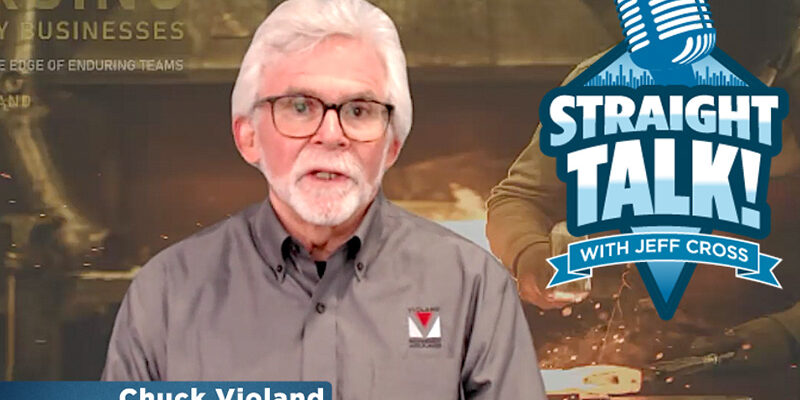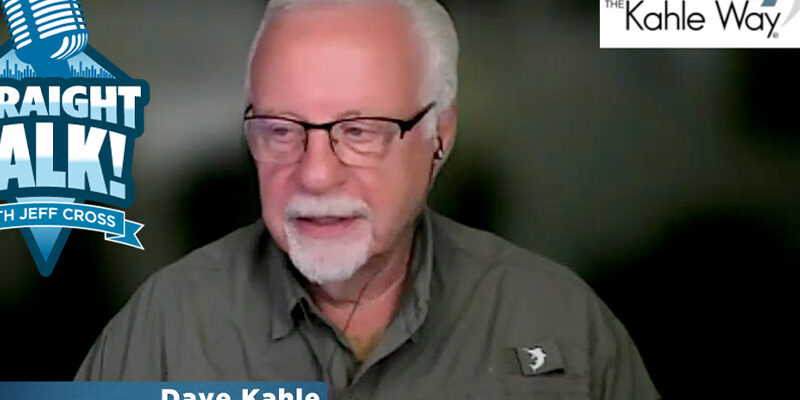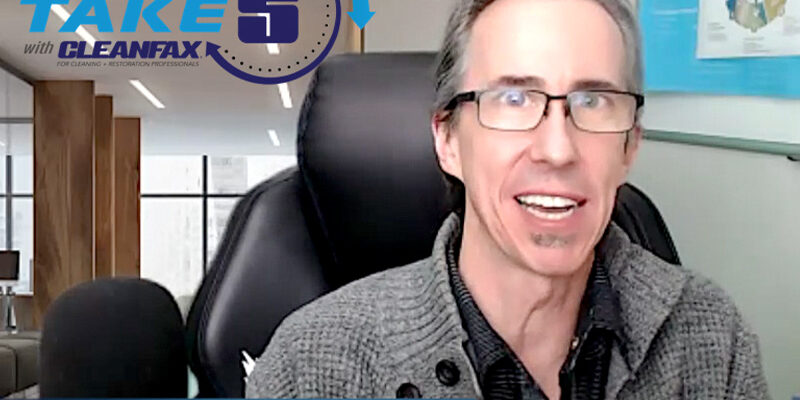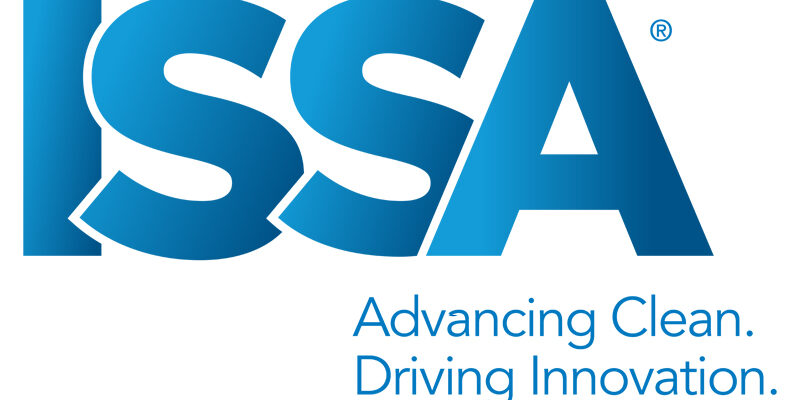The 2023 Restoration Industry Leaders Review

Growing a business today is a challenging task that requires a combination of strategic planning, innovative thinking, and the ability to adapt to ever-changing market conditions.
With globalization, digitalization, and rapid technological advancements, the business landscape has become more competitive. This is especially true for disaster restoration companies. They face intense pressure to innovate, streamline their operations, and stay ahead of the curve to remain relevant in today’s fast-paced business environment.
One of the primary challenges restorers face today is competition. Companies must differentiate themselves from competitors to stand out, attract customers, and get work from insurance companies. This requires them to develop a unique value proposition, create a strong brand image, and constantly innovate. Furthermore, companies must continuously monitor the market and stay informed of emerging trends, new technologies, and shifting consumer preferences to remain competitive.
And the need to network to be personal at the same time can’t be overstated.
Another significant challenge faced by businesses is the rapidly evolving digital landscape. With the proliferation of smartphones, social media, and e-commerce platforms, companies must have a robust online presence to reach their target audience effectively and respond to questions and concerns. This requires them to invest in digital marketing, optimize their website for search engines, and leverage social media channels to engage with customers. In addition, businesses need to ensure that their websites and online stores are mobile-friendly, secure, and provide a seamless user experience. Is this the entire list of staying abreast of technology in the digital world? Not at all, but it is a good start.
Another critical challenge businesses face today is the need to recruit and retain top talent. With the rise of the gig economy and remote work, employees have more options than ever, and companies must create a work culture that fosters originality, creativity, and growth. This requires businesses to offer competitive compensation packages, provide opportunities for professional development, and create a supportive and inclusive work environment that fosters collaboration and teamwork.
What does all this mean? Running a successful restoration company isn’t easy; you don’t just build it and hope it keeps growing. One strategy that Cleanfax provides is information, including success stories within the industry. Read on and see what three successful companies have done—and are doing—to remain competitive and relevant in the marketplace.
The players
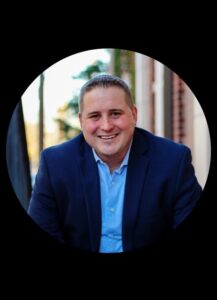
Scott Vogel
First up is Emergi-Clean. Scott Vogel is the chief operating officer and partner. The company is a second-generation, woman-owned, family-owned and operating business specializing in biohazardous, infectious, and hazardous material remediation since 1995. Emergi-Clean serves the New Jersey, New York City, and Philadelphia metropolitan areas, working out of two locations in Rahway and Flemington, New Jersey.

James Stephenson
Then we have Stephenson Restoration, a disaster restoration company serving the Salt Lake City market. The firm had its genesis as a carpet cleaning company and then expanded. The owner is James Stephenson, who spent much of his career in law enforcement before launching a “side gig” company called Big Jim’s Carpet Cleaning in 2020 to supplement his income. Since then, he has turned to restoration management services (RMS) consulting, tapping into the industry knowledge of principals Gregg Sargent and Nate Cisney to launch Stephenson Restoration into full-scale operations.
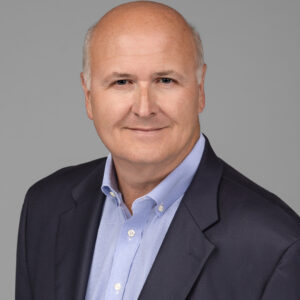
Ken Chambers
Last but not least is Pro-Care Restoration, with Ken Chambers as president. The company is based in Summerfield, North Carolina, and serves Greensboro, Winston-Salem, High Point, and other regional areas. The company provides traditional restoration services as a family-owned and operated business with over 20 years in the industry.
Elevator pitch
For Emergi-Clean, Vogel said it’s all about “believing in unparallel service and knowledge throughout our company.” From leadership to technicians and office staff, education has always been a primary focus for the company. “We have developed and implemented an apprenticeship program that entails our technicians completing 295 hours of classroom training and 4,000 field experience, making us unique when servicing our clients. Continuing education is key.”
Speed is the name of the game for Pro-Care Restoration. “We are a full-service restoration company,” Chambers said, “and we strive to be the quickest on rebuilds in the industry. Our motto is: We do it all, large or small!”
Property disasters are unplanned events, and, most often, property owners are unprepared, unsure, and uneasy as they seek solutions to their urgent needs, according to Stephenson. For his company, “It is all about restoring peace of mind for the affected property owner along with rectifying the physical issues impacting the property.” He has pride in what his company does “through clear communication, proven processes, and strong relationships with the partnering parties, such as insurance companies.” This all adds up to a quick and affordable resolution to projects.
Challenges faced and fixed
Chambers recognizes strong competition, embraces the challenge, and determines the best way to compete. “There are several well-known franchises that serve the areas we also serve,” he explained. “This was a challenge we had to overcome to grow our company successfully. We advertised on Google and in the community and depend heavily on agent referrals.” It has paid off for Pro-Care Restoration as the company continues to enjoy success.
For Stephenson, a challenge they identified and resolved was finding knowledgeable and driven employees who fully support the business plan. He cites two examples: “In the case of our business manager, we hired a person with deep experience with a major restoration company in a neighboring state. We provided a better pay opportunity and covered the cost of relocation, and she is performing spectacularly. In the case of our crew foreman, we found a person with the personality and character qualities we wanted long-term, and, despite their inexperience in the industry, we invested in the training courses, seminars, and on-the-job training needed to bring the required skillsets.”
On top of that, Stephenson Restoration struggled with being an “unknown” among the company’s key lead sources and had to build a marketing plan to resolve that. The focus was on local insurance agents, adjusters, plumbers, and property managers, tapping into the resources again of RMS Consulting.
Emergi-Clean sees some of the same challenges as others in the industry and has figured out the best way to resolve them. From financial management, cash flow, budgeting, and forecasting, the staff has educated itself through professional development and networking. “While it may be tedious at times, we continue to grow and plan our finances to be more prepared.”
Competition is another factor, and Emergi-Clean has invested in its brand. They stand out. “To me, a brand isn’t just a logo or name; it’s the company,” stated Vogel, “from your leadership to your new hires.” The company is doing it right because that motto is working.
On top of that, Emergi-Clean tackles employee retention with its apprenticeship program, Vogel said, “to give our new hires a plan to develop themselves to be leaders in this company.” He believes in building a positive company culture, providing opportunities for career development, and offering incentives for employee retention, such as a bonus system and flexible work arrangements. “Identify the problem, develop a plan, and act,” Vogel said. “It’s also essential to be adaptable and willing to make changes as needed to ensure the business’s long-term success and employee longevity.”
Business strategies
Stephenson Restoration operates in an outlying community adjacent to a large metro area: Salt Lake City. “Buying local is a meaningful thing here, where they prefer to do business with those who live in the community versus those who must travel to our valley from the big city,” Stephenson explained. “We are heavily involved in local organizations such as the Realtor® association and a business networking group, where we are becoming known as the local resource for disaster response.” On top of that, his company is active on the community Facebook groups for each of the small towns in its valley. Stephenson Restoration holds Plumber Appreciation Day barbecue events at the local plumbing supply house “so that we become tight with those who are often the first to be called when a property is flooded,” he said.
For Emergi-Clean, it’s all about innovation. “Innovation is a strategy I used a lot; it can involve developing new products, services, or processes that are unique and offer a competitive advantage,” Vogel explained. “We focus and specialize in crime and trauma scene mitigations, allowing us to market our services to other restoration companies.” Part of the strategy for this is something Vogel knows everyone sees: “We tend to offer the same thing; for example, how many water, fire, and mold companies are there? I feel like there is one on every corner.” So Emergi-Clean doesn’t directly compete with that but instead offers solutions to complex problems that many mainstream restoration companies do not specialize in or have the training to do, such as bioterrorism response.
Then there is the “customer-centric approach” that Vogel embraces. “A customer-centric approach involves focusing on the needs and preferences of customers to improve the customer experience and build brand loyalty,” he said. “This can be achieved by listening to a customer, gathering feedback, making changes and implementing new ideas, and always providing exceptional customer service.”
Chambers has a strategy like other successful companies: Focus on the people. “We hire great people,” he explained. “In this industry, you need people who will do the job right and do it right the first time. It takes time to grow your team, but it is essential.” Chambers also works diligently to keep as much of the contracted work in-house, which adds to his excellent customer service philosophy.
The technical advantage
Vogel loves technology. He might not argue the point if you called him a tech junkie. “There are so many new ways of technology. I research every new piece of equipment that comes out,” he proudly stated. “But just because they say it is the best does not mean it is. We need to learn, research, and understand what is being developed. Technology has allowed us to enhance capabilities through efficiency and productivity and will continue to be an essential part of our company.”
Stephenson points to customer relationship management systems, cloud-based software, thermal imaging, and the latest in drying technology to help his company with precision restoration.
Chambers agrees and points to documentation technology, management software, and other technological services that enhance what his company is already doing with a solid team.
Real success identified
Vogel knows that success can mean different things to different people, as it is highly personal and subjective. “To me, real success means having a sense of fulfillment and purpose. It means using my abilities and talents to positively impact the world, whether that’s through helping people, advancing knowledge and innovation, or contributing to the greater good,” he explained. “Ultimately, success is a journey rather than a destination, and it requires ongoing self-reflection, learning, and growth. It’s important to set goals and strive for excellence, but it’s also important to celebrate small successes along the way and be grateful for the blessings in life.”
Stephenson sees solving serious issues for others as an essential component of success. “We take great personal satisfaction in solving another person’s dilemma, and this industry allows us to do this repeatedly,” he said. “Success, in our minds, would be to serve our community by resolving the damage issues that arise while making a good living for ourselves and our employees.”
And what about doing what you like to do? That’s top of mind for Chambers. “Real success looks like doing something I love daily,” he said. “I am thankful that I get to help others in stressful times of their lives. We create relationships with many of our customers, which defines success to me.”
Leaving a legacy
Creating a positive legacy is essential for many people, as it allows them to make a lasting impact on the world and leave a meaningful mark on the people and communities they touch. “When thinking about my legacy, I first want to be known as a loving husband and father; no matter how stressful and busy work can get, I always try to make it home at a reasonable time to have some family time,” Vogel stated. “Within the community, my legacy is a service of charity and unity. I started a nonprofit called the Bearing Hope Foundation to ensure that when a child goes through a rough/traumatic event, they have a teddy bear to hold onto.”
On his own legacy, Vogel said: “The size of my company will not be my legacy but making that significant difference will be. Instilling values of health and safety with employees and other restorers and promoting professional development in the industry is critical to a path of a great legacy for me; you might be one of the best in the industry, but if you aren’t willing to share and help others achieve their full potential, then to me, you won’t be remembered,” he said.
Chambers values the positive difference he and his company make in the lives of others. “I want to have a lasting impact on people’s lives,” he explained. “Some qualities I strive to leave behind are honesty, character, and work ethic.”
Stephenson echoes similar sentiments. “This may sound a bit over-the-top, but we want to build a heroic business, one that our clients view with a sense of gratitude for the solutions we provide and the genuine care we display as we undo significant effects of their disaster.”


